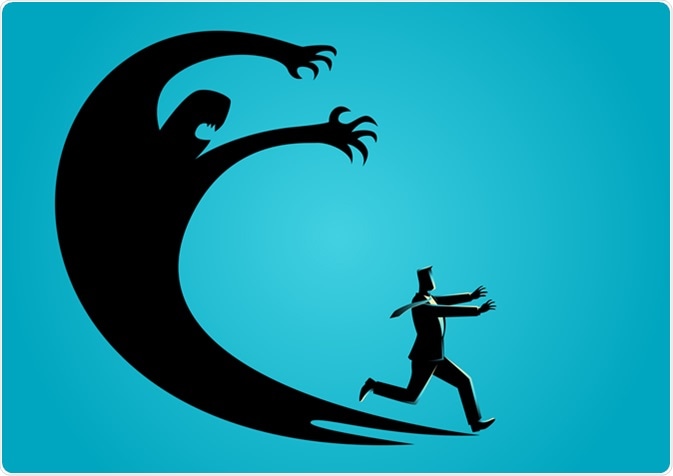Glass Half Empty?
For as long as I can remember I've been surrounded by optimists. My mother, for one, who leaves the room when someone mentions anything remotely negative. She doesn't watch the news in fear that something depressing might have happened overnight. Its 2018. Of course it has. That's not to say that I have anything against these perpetually sunshine-y individuals. I love my mother and appreciate her ability to put a positive spin on literally anything. I wouldn't describe myself as an optimist or a pessimist. In my mind I'm more of a realist. My family and close friends would argue otherwise. Just today one of my best friends told me to "stop being so negative". I asked her what she was talking about and she responded with, "no offense but you're a little pessimistic". I didn't take offense.
I've always wondered why the vast majority of people have something against negativity. Is it really such a bad thing to see storm clouds rather than the clear sky that follows? American philosopher William James said, "Pessimism leads to weakness, optimism to power". A quote that resonates with me to a certain degree. Living in a shroud of gloom isn't healthy but I do believe that a dose of defensive pessimism here and there motivates us to accomplish more. I identify more with with Antonio Gramsci's approach. "Pessimism of the spirit; optimism of the will". To visualize a situation, create an idea of what can go wrong and act preemptively to ensure that everything goes off without a hitch.
Dr. Jeffery Rossman has identified two different forms of pessimism. Defensive, which involves the ability to scrutinize a scenario, and dispositional which is a continually negative outlook. When the subject of pessimism arises people are quick to jump to the latter. Dispositional pessimism has sullied the name of pessimists everywhere.
Let's take a job interview as an example. The defensive pessimist is riddled with worry. They want this job just as desperately as everyone else but have arranged for their interview a lot more. Their tendency to over analyze and obsess over details makes them. The optimists in the waiting room simply rolled out of bed that morning and ironed their pantsuits. Possibly listened to The Beatles on the drive there. Our defensive pessimist drove over in silence mulling over how they would walk in and how many times they'd shake the interviewer's hand. Two or three? Which is right? Can someone please explain this to me?
Dr. Jeffery Rossman has identified two different forms of pessimism. Defensive, which involves the ability to scrutinize a scenario, and dispositional which is a continually negative outlook. When the subject of pessimism arises people are quick to jump to the latter. Dispositional pessimism has sullied the name of pessimists everywhere.
Let's take a job interview as an example. The defensive pessimist is riddled with worry. They want this job just as desperately as everyone else but have arranged for their interview a lot more. Their tendency to over analyze and obsess over details makes them. The optimists in the waiting room simply rolled out of bed that morning and ironed their pantsuits. Possibly listened to The Beatles on the drive there. Our defensive pessimist drove over in silence mulling over how they would walk in and how many times they'd shake the interviewer's hand. Two or three? Which is right? Can someone please explain this to me?
Once they sit down they'll break the ice by making a small joke about the weather. They don't want the interview to be awkward and know that they'll perform better if they feel comfortable with whoever's sitting across from them. Any question the interviewer presents them with has a carefully crafted response ready to go. They've thought of everything. As a result they feel extremely confident in the outcome of said interview. The well rested, scarily prepared defensive pessimist is ready to conquer.
While the above form of pessimism may come naturally to some, it's also a bona fide coping strategy for individuals with anxiety. Nancy Cantor and Julie Norem studied it together in 1867. In 2002 Norem concluded that people with anxiety using defensive pessimism perform significantly better than their equally anxious counterparts who don't. This theory relates to all aspects of life whether it be relationships, academia, the workplace, etc. Another viable mechanism or tool is strategic optimism. Either of the previously mentioned strategies might benefit those with certain levels of anxiety.
Implementing defensive pessimism properly is key. It makes a difference between profiting from the technique and unintentionally increasing your anxiety and stress. Defensive pessimists will first set low expectations as a way to shield themselves from a possible unwanted outcome. They will then visualize what can go wrong from the moment they enter the scenario until they have completed it and are safe. Eventually they'll have formulated a 'game plan'. A bulletproof step-by-step instruction manual of sorts that grants them the best possible result. If its earning an A-plus or merely avoiding embarrassment in front of their peers. It's important for persons using this strategy to reflect on why they have such a strong conviction of their own failure. Reflection is one of the differences that draws the line between the two forms of pessimism.
So what if you're a little negative? Use it to your advantage and harness control of your anxiety and stress. Don't apologize for being nit picky when you're working on a group project. Samantha's just jealous that she didn't notice all of the grammatical errors in the script. Life is messy and there are a lot of bumps in the road. Some mountains as well. There's a lot of room for things to go wrong but us defensive pessimists? We demand perfection. We fill that hypothetical glass up to its brim.
Defensive pessimism might be harmful for you as an individual in which case you should attempt to utilize alternate strategies. Everyone is different which is why there isn't a guaranteed 'cure-all' out there.





Comments
Post a Comment